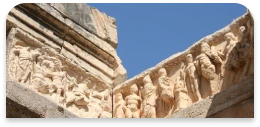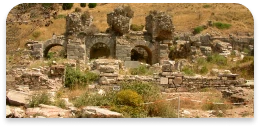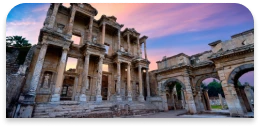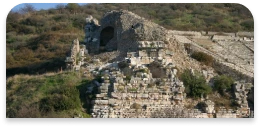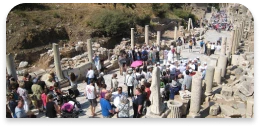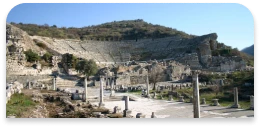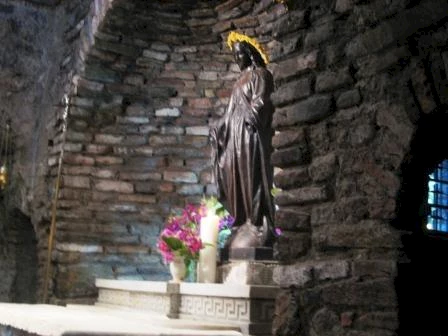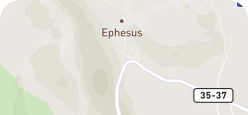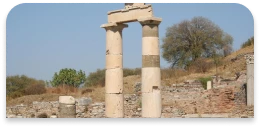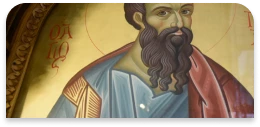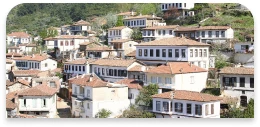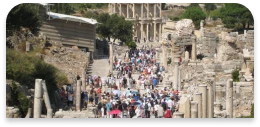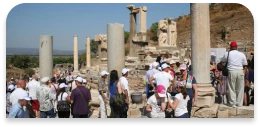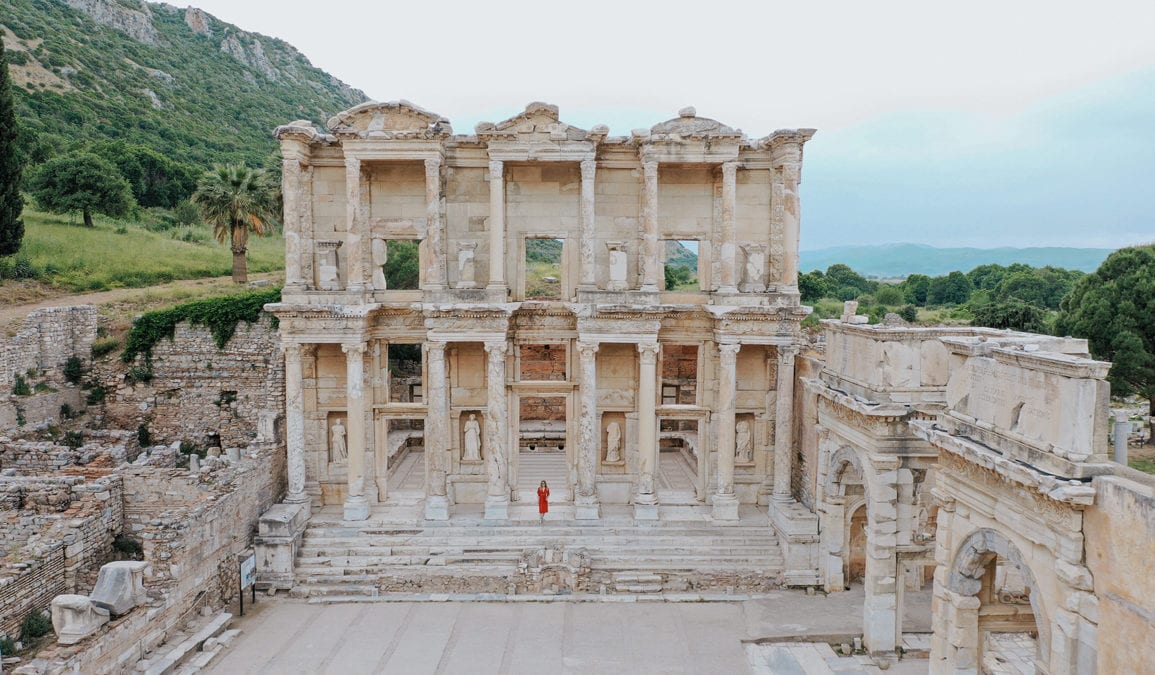Temple of Hadrian
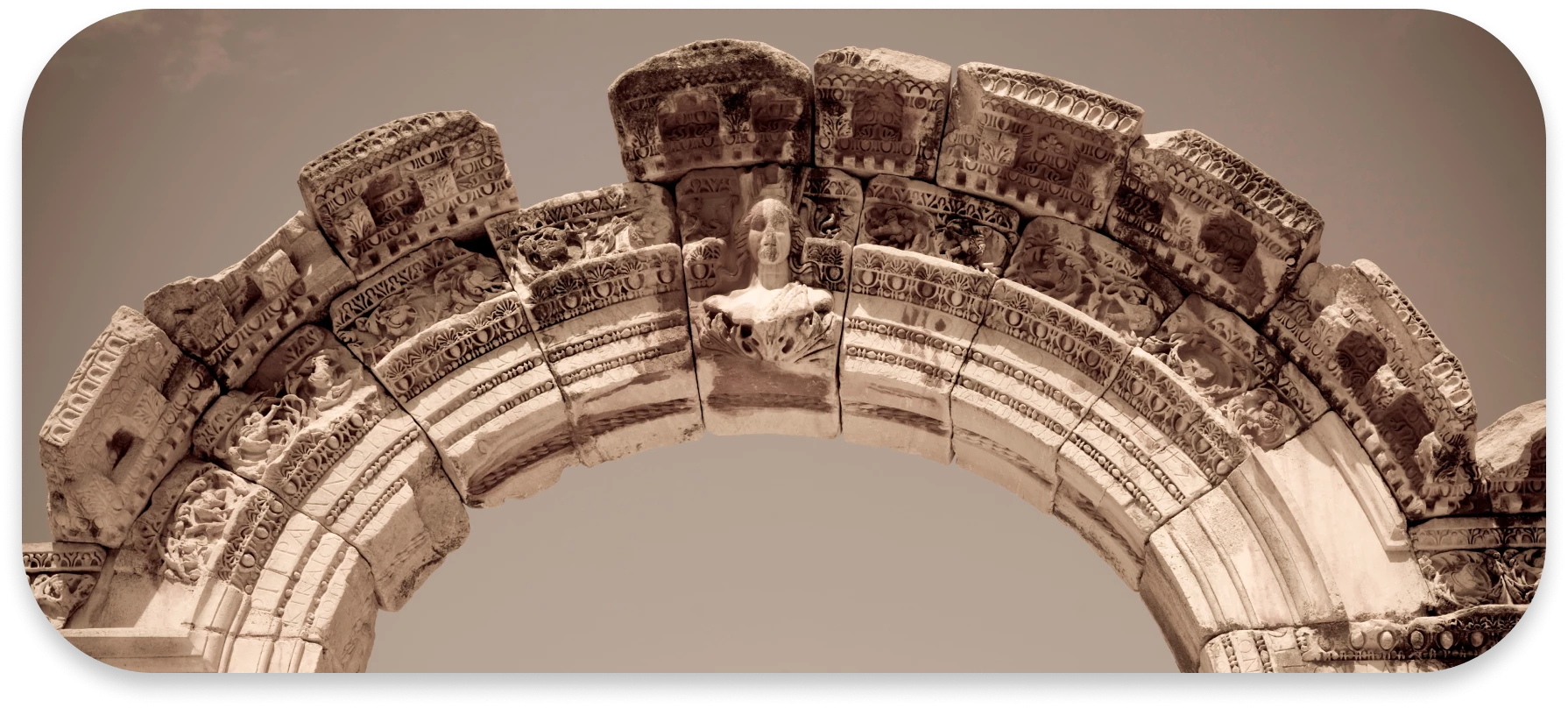
Temple of Hadrian is one of the best-preserved and most beautiful structures on Curetes Street. It was built before 138 A.D by P. Quintilius and was dedicated to Emperor Hadrian, who came to visit the city from Athens in 128 A.D. The facade of the temple has four Corinthian columns supporting a curved arch, in the middle of which contains a relief of Tyche, goddess of victory. The side columns are square. The pedestal with inscriptions in front of the temple is the bases for the statues of the emperors between 293-305 CE, Diocletian, Maximian, Constantius I, and Galerius; the originals of the statues have not been found yet.
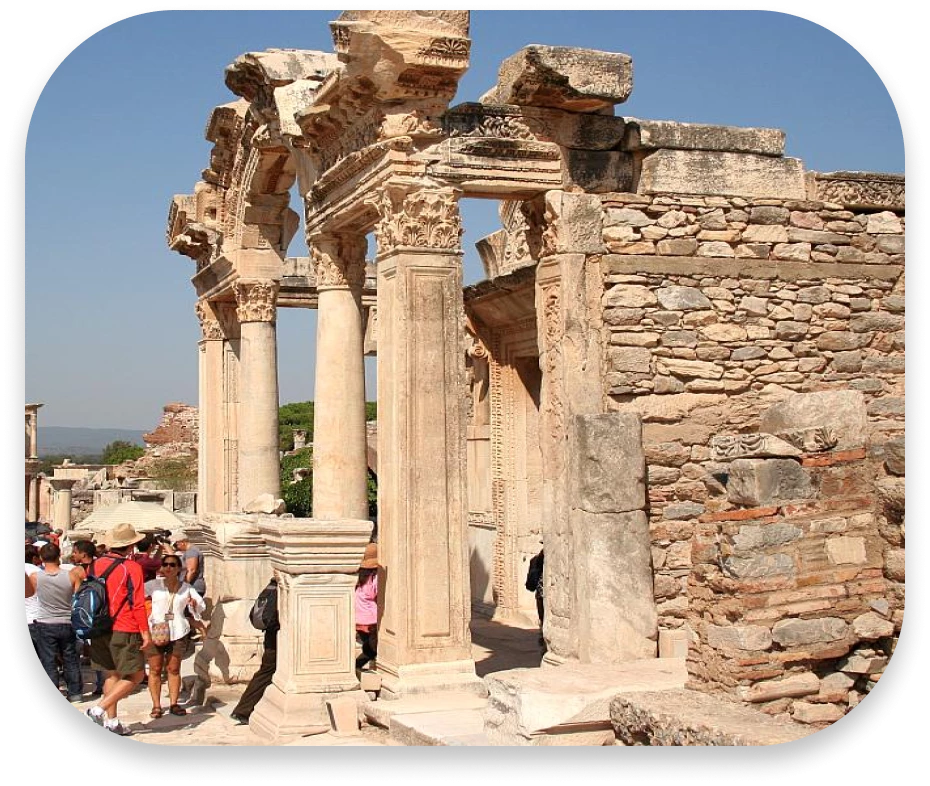
Inside the Hadrian Temple above the door, a human figure, probably Medusa stands with ornaments of acanthus leaves. On both sides, there are friezes depicting the story of the foundation of Ephesus - Androklos shooting a boar, Dionysus in ceremonial procession and the Amazons. The fourth frieze portrays two male figures, one of which is Apollo; Athena, goddess of the moon; a female figure, Androkles, Herakles, the wife and son of Theodosius and the goddess Athena. The friezes that are seen today are copies, and the originals are displayed in Ephesus Museum.
Emperor Hadrian was one of the Five Good Emperors. The Five Good Emperors is a term that refers to five consecutive emperors of the Roman Empire— Nerva, Trajan, Hadrian, Antoninus Pius, and Marcus Aurelius. The term is first coined by the political philosopher, Niccolò Machiavelli in 1532. Publius Aelius Hadrianus was born on 24 January AD 76, probably in Rome, though his family lived in Italica in Baetica.
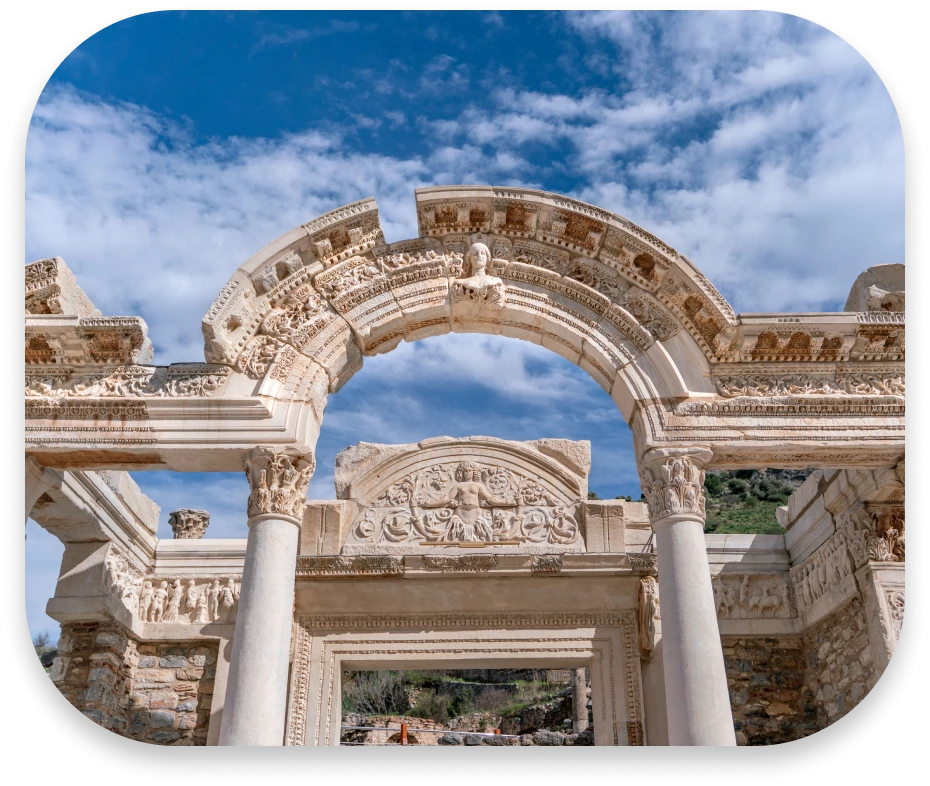
Emporor Trajan was his cousin. Hadrian was schooled in various subjects particular to young aristocrats of the day, and was so fond of learning Greek literature that he was nicknamed Graeculus ("Little Greek").Hadrian was active in the wars against the Dacians and reputedly won awards from Trajan for his successes. Due to an absence of military action in his reign, Hadrian's military skill is not well attested, however his keen interest and knowledge of the army and his demonstrated skill of administration show possible strategic talent.
Hadrian
Hadrian appears to have been a man of mixed sexual interests. The Historia Augusta criticizes both his liking of goodlooking young men as well as his adulteries with married women.It is belived that he tried to poison his wife. When it comes to Hadrian's homosexuality, then the accounts remain vague and unclear. Most of the attention centres on the young Antinous, whom Hadrian grew very fond of. Statues of Antinous have survived, showing that imperial patronage of this youth extended to having sculptures made of him. In AD 130 Antinous accompanied Hadrian to Egypt. It was on a trip on the Nile when Antinous met with an early and somewhat mysterious death. Officially, he fell from the boat and drowned.
Hadrian died in 138 on the tenth day of July, in his villa at Baiae at age 62. However, the man who had spent so much of his life traveling had not yet reached his journey's end. He was buried first at Puteoli, near Baiae, on an estate which had once belonged to Cicero. Soon after, his remains were transferred to Rome and buried in the Gardens of Domitia, close by the almost-complete mausoleum. Upon the completion of the Tomb of Hadrian in Rome in 139 by his successor Antoninus Pius, his body was cremated, and his ashes were placed there together with those of his wife Vibia Sabina and his first adopted son, Lucius Aelius, who also died in 138. Antoninus also had him deified in 139 and given a temple on the Campus Martius.
Poem by Hadrian
According to the Historia Augusta Hadrian wrote shortly before his death the following poem:
Animula, vagula, blandula
Hospes comesque corporis
Quae nunc abibis in loca
Pallidula, rigida, nudula,
Nec, ut soles, dabis iocos...
P. Aelius Hadrianus Imp.
Little soul, roamer and charmer
Body's guest and companion
Who soon will depart to places
Darkish, chilly and misty
An end to all your jokes...
Private Ephesus Tour
%100 satisfaction guarantee
